
If you suffer from excessive sweating, chances are, you suffer every day. You may constantly worry about how much you’re sweating. You may spend hours each day dealing with sweat - changing clothes, "freshening up", wiping, placing napkins or pads under your arms or in your pockets, bathing, and hiding under dark-colored, bulky clothes. You may have lost friends and opportunities because of extremely sweaty palms, slippery sweaty feet, sweating on your face, or uncontrollable sweating underarms. Afraid of what people will think, you may even make excuses to stay home or choose careers in which you don’t have to interact with people, shake hands, or give presentations. Emotional problems, including depression, social isolation, and decreased confidence, can result.
In addition to psychological troubles, excessive sweating can also cause painful or irritating skin problems, such as bacterial or fungal overgrowth, infections, and disintegration (also called maceration) of the skin. From physical discomfort to anxiety, embarrassment, and the stress of always hiding your sweat from others, hyperhidrosis can impact nearly all aspects of your life. To help your clinician, your health insurance plan, even your friends and loved ones understand how much hyperhidrosis negatively affects you, it’s useful to think about and keep track of its daily effects.
Print out the following questions and use them to keep track of how excessive sweating manifests itself in your life and how sweat impairs your daily activities. Write in your answers to the questions and cite examples. Bring the questions and your answers to your next medical appointment, or use them as evidence of the seriousness of your condition if you need to convince your health insurance plan to cover your treatments. Click here for a printable worksheet.
While it's important to document how excessive sweating impacts the quality of your life, it's also key to understand that there are two main types of hyperhidrosis--primary focal and secondary generalized--and your next step is to learn the difference so you can move forward in finding relief.
How will your clinician diagnose hyperhidrosis? Ideally, the following ABCs will be factored in:
Age of Onset: Primary Hh usually begins during childhood or adolescence (with cranio/facial sweating, however, trending later).
Bilateral: People with Hh experience bilateral (both sides of the body), symmetric, focal (specific) involvement of palms, feet, and/or underarms (sometimes along with other specific bilateral body areas). If you are sweating on one side only, or have all-over sweating, talk to your clinician about the possibility of an underlying condition with sweating as a symptom.
Cessation during sleep - Primary hyperhidrosis does not cause excessive sweating during sleep. If you sweat only when asleep, talk to a healthcare professional about secondary Hh or another possible underlying cause. If the sweating is problematic both day and night, a combination of primary and secondary hyperhidrosis is possible.
Duration - For a primary Hh diagnosis, excessive sweating symptoms or episodes that have been going on for 6+ months with 2+ episodes per week are considered.
Episodes - Extreme, uncontrollable sweating will likely not be continuous or constant if you have primary Hh. Most sufferers will experience episodes of varying frequency, length, and degree. Keep track of the number of episodes per week and the effects those episodes have on daily life, stress and anxiety.
Family - 2/3rds of primary Hh sufferers indicate other family members have Hh, too. Keep in mind, however, that due to potential embarassment, families members may not talk about it.
Gets in the way - Some level of sweating and increased sweating is expected in life. Hh, however, gets in the way of participating in school and sports, working comfortably, having fun, pursuing dreams, developing relationships, and more. Further, it has been shown that Hh has a deep impact on mental wellness, especially among young people.
If you and your healthcare team are looking for the latest diagnosis codes for hyperhidrosis, here they are:
ICD-10 Codes (Effective Oct. 1, 2015)
L74.5 - Focal Hyperhidrosis
L74.51 - Primary Focal Hyperhidrosis
L74.510 - Axilla
L74.511 - Face
L74.512 - Palms
L74.513 - Soles
L74.519 - Unspecified
L74.52 - Secondary Focal Hyperhidrosis
L74.8 - Other Eccrine Sweat Disorders
L74.9 - Eccrine Sweat Disorder Unspecified
Latest Blogs